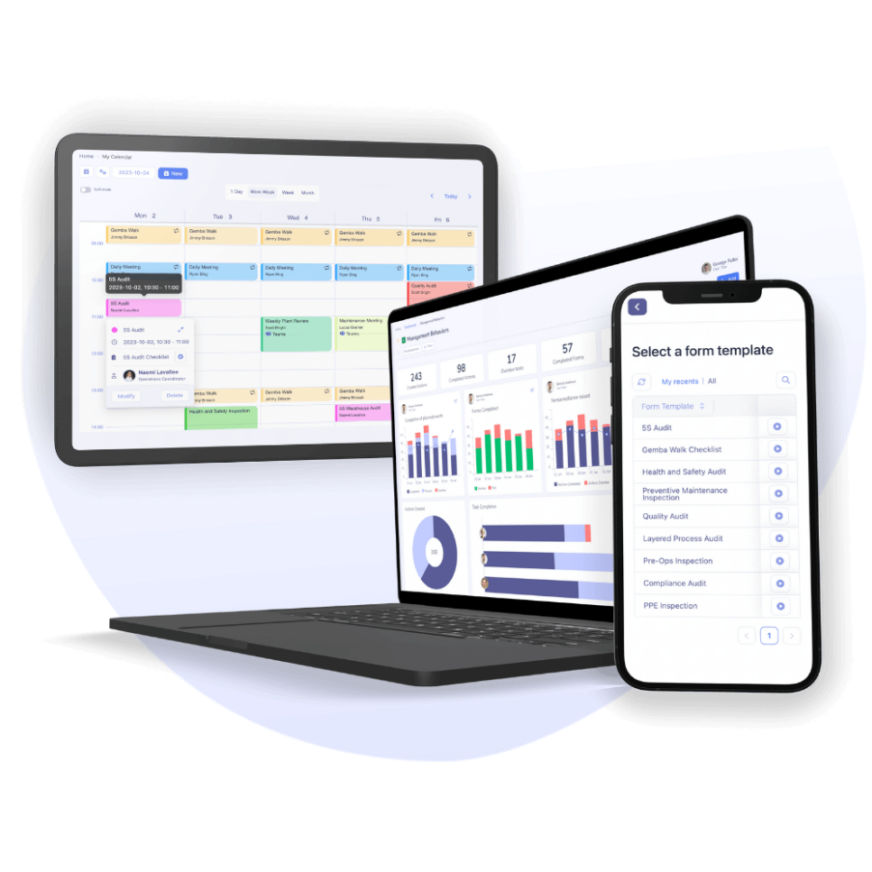In factories, daily production meetings and huddles are essential for maintaining a smooth workflow, keeping employees informed about progress, and addressing any issues that may arise. However, these meetings can quickly become ineffective if they are not structured properly.

Here are some tips for running effective daily production meetings and factory team huddles:
Segregate meetings with management levels (Tier 1, Tier 2, Tier 3)
It is important to segregate meetings with management levels (tier 1, tier 2, tier 3) because it allows for more focused and efficient communication within each level. Each level of management has different responsibilities, expertise, and decision-making authority, and holding separate meetings allows each level to discuss issues and make decisions that are most relevant to their respective roles.
Tier 1 meetings typically involve front-line supervisors and focus on day-to-day operations and problem-solving. Tier 2 meetings involve middle managers and focus on longer-term planning and strategy. Tier 3 meetings involve senior executives and focus on high-level strategic planning and decision-making.
Keep it short and sweet
Time is of the essence in a factory, and employees often have limited time to spend in meetings. Therefore, it’s essential to keep these meetings short and focused. Aim for a maximum of 15 to 30 minutes and prioritize the most critical issues that need to be discussed.
Set an agenda
To ensure that the meeting stays on track, it’s important to set an agenda beforehand. This should include a list of topics that will be discussed, the duration of each discussion, and who will be responsible for leading each item.
Start with positive news
Starting the meeting on a positive note can set the tone for the rest of the meeting. Begin by sharing any good news, such as meeting production targets, or recognizing team members for their hard work.
Discuss daily production goals
Discussing daily production goals can help everyone stay focused on what needs to be achieved for the day. Review the previous day’s production output and any obstacles that need to be addressed to meet the daily target.
Address safety concerns
Safety is a top priority in any factory, and daily huddles provide an opportunity to discuss any safety concerns or near-misses that have occurred. Discussing safety measures can help prevent future incidents and ensure the safety of all employees.
Encourage participation
Encourage participation from all team members, and ensure that everyone has an opportunity to contribute to the discussion. This can help build a sense of teamwork and encourage employees to take ownership of their work.
End with action items
To ensure that the meeting is productive, end with action items. This should include specific tasks that need to be completed before the next meeting and who will be responsible for completing them.

3 benefits to standardizing your production meetings
Standardizing meetings with a daily and weekly calendar is important for several reasons.
- It ensures that everyone knows when and where meetings will take place, which helps to prevent confusion or scheduling conflicts. This allows all team members to plan their workday around the meetings and ensures that they can attend without interruptions.
- It creates a sense of accountability and ownership for each team member. Knowing that meetings are scheduled at specific times makes team members more likely to prepare and come to the meeting ready to participate and contribute.
- It ensures that meetings are focused and productive. By knowing when and where meetings will take place, team members can come prepared and ready to discuss specific topics. This can help to prevent meetings from running over time or becoming unproductive.
To give you an idea of what a weekly meeting schedule could look like, check out this example:
| Day | Time | Meeting |
|---|---|---|
| Monday | 8:30 AM | Daily Huddle – Production Team |
| Monday | 10:00 AM | Weekly Production Meeting – Production Team Leaders |
| Tuesday | 8:30 AM | Daily Huddle – Quality Team |
| Tuesday | 9:00 AM | Daily Huddle – Maintenance Team |
| Wednesday | 8:30 AM | Daily Huddle – Production Team |
| Wednesday | 9:00 AM | Daily Huddle – Safety Team |
| Thursday | 10:00 AM | Weekly Production Meeting – Production Team Leaders |
| Friday | 8:30 AM | Daily Huddle – Production Team |
Running effective daily production meetings and huddles in factories requires careful planning and execution. By keeping the meetings short and focused, setting an agenda, starting on a positive note, discussing daily production goals, addressing safety concerns, encouraging participation, and ending with action items, these meetings can be a valuable tool for maintaining a smooth workflow and addressing any issues that may arise.
Tervene, Daily Management System
Tervene is the best all-in-one solution to support your operational control, leader standard work, continuous improvement, and QEHS processes.

























